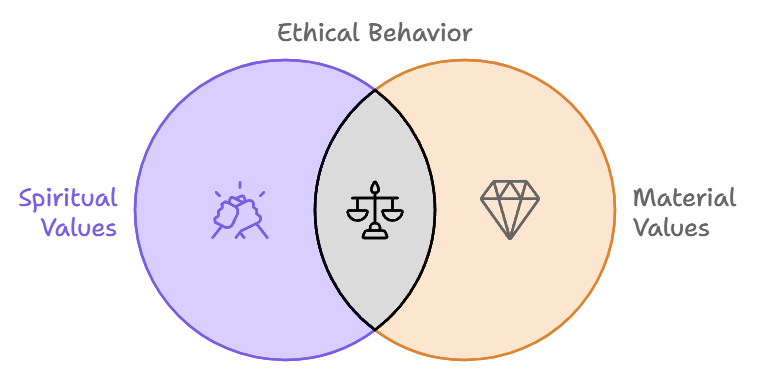- Filter By :
- Theoretical Questions
- Case Studies
-
Q Swami Vivekananda emphasized the harmony of spiritual and material values for societal progress. Examine the relevance of his philosophy in tackling modern-day ethical dilemmas. (150 words)
21 Nov, 2024 GS Paper 4 Theoretical QuestionsApproach
- Introduce the answer by highlighting Swami Vivekananda’s emphasis on harmony of spiritual and material values
- Give Relevance of Swami Vivekananda’s Philosophy to Modern Ethical Dilemmas
- Conclude suitably.
Introduction
Swami Vivekananda, a 19th-century spiritual leader and reformer, emphasized the harmony of spiritual and material values, advocating for a balanced approach to individual and societal development.
- His philosophy promotes ethical conduct, spiritual growth, and material well-being, providing a framework for addressing modern-day ethical dilemmas characterized by conflicts between values, self-interest, and societal responsibilities.
Body
Relevance of Swami Vivekananda’s Philosophy to Modern Ethical Dilemmas
- Balancing Self-Interest and Collective Welfare
- Ethical Dilemma: The pursuit of material wealth often conflicts with the broader social good, as seen in issues like environmental degradation.
- Philosophy’s Relevance: Vivekananda emphasized selflessness and service, advocating for individual prosperity aligned with societal well-being.
- For instance, adopting sustainable business practices balances profit motives with environmental conservation.
- Resolving Conflicts in Governance and Leadership
- Ethical Dilemma: Corruption, favoritism, and a lack of accountability in governance undermine public trust.
- Philosophy’s Relevance: Vivekananda’s stress on integrity and spiritual discipline encourages ethical leadership.
- His teachings inspire decision-making based on dharma (duty) rather than personal gain, crucial for public servants.
- Promoting Social Justice and Equity
- Ethical Dilemma: Disparities in wealth and access to resources create ethical concerns about fairness and equity.
- Philosophy’s Relevance: Swami Vivekananda championed upliftment through education and equality.
- His idea of Daridra Narayana (serving the poor as a form of worship) encourages policies and actions aimed at reducing inequality and ensuring social justice.
- Ethics in Technology and Innovation
- Ethical Dilemma: Issues such as data privacy, misuse of AI, and widening digital divides pose challenges.
- Philosophy’s Relevance: Vivekananda’s vision of harmonizing progress with ethical and spiritual values calls for ethical use of technology that serves humanity rather than exploiting vulnerabilities.
- Addressing Moral Relativism in Personal Lives
- Ethical Dilemma: Modern society often faces moral ambiguity in issues like lifestyle choices and consumerism.
- Philosophy’s Relevance: By emphasizing self-control, self-awareness, and spiritual grounding, Vivekananda offers a guide to making value-based personal decisions that align with inner peace and societal harmony.
- He also stated that, “Anything that makes you weak – physically, intellectually and spiritually, reject it as poison.”
Conclusion
Swami Vivekananda’s philosophy offers timeless guidance for tackling modern ethical dilemmas. By harmonizing spiritual and material values, individuals and societies can navigate the complexities of modern life with integrity, inclusiveness, and a focus on collective progress.
To get PDF version, Please click on "Print PDF" button.
Print PDF





